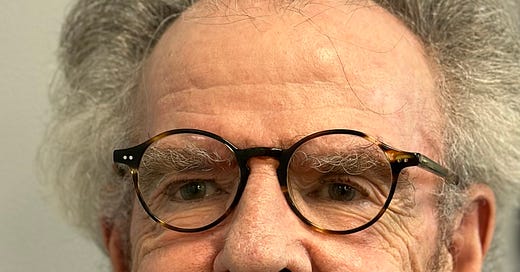What Is It Like to Be an Addict? with Prof. Owen Flanagan | Flourishing After Addiction #40
"One cannot have a complete theory of addiction without incorporating the addict’s experience. Listen carefully to what addicts say about what it is like to be an addict."
Nearly two decades ago, Owen Flanagan stood before the Society for Philosophy and Psychology, ready to open up about something uncharacteristically personal. Unlike his typical scholarly talks on consciousness and philosophy of mind, he was about to tell the distinguished group about his lived experience with addiction and recovery. He wanted to describe what it was like to exist as the “sick hollow vessel” he had become, and how he barely survived.
Today, sober for 18 years, and an internationally acclaimed philosopher, Owen has become one of our leading voices on the philosophy of addiction. He has an important new book out: "What Is It Like to Be an Addict?"—sharing the title of that groundbreaking 2008 presentation where he first publicly disclosed his addiction history.
Check out our conversation here: (and I’m trying something new for this episode, embedding the audio directly in Substack, so let me know how it works)
As always, you can also listen to this episode on your favorite podcast player, or wherever you get your podcasts.
I’ve been reading Owen’s work since my days as an undergrad, when a research tech in my lab thrust one of his books in my hands and implored me to read him, and it’s been such a pleasure to connect with Owen about his work on addiction. This is a great book: he combines personal reflections with his philosophical expertise to propose a new, integrated model for understanding substance addiction. Drawing on his deep knowledge of philosophy, psychology, and neuroscience, he challenges oversimplified addiction narratives and offers what he calls an "ecumenical" approach—arguing that substance addictions are far more heterogeneous than we often recognize, with diverse causes, neural profiles, and lived experiences. His interdisciplinary work across neuroscience and philosophy perfectly positions him to explain these nuanced issues.
In this conversation, we explore the spectrum of "powerlessness" in addiction and the finer points of self-control, especially problems with traditional explanations of willpower. Owen critiques the usual stories about dopamine’s role in addiction, especially the way mainstream scientists have sacrificed their intellectual integrity to present an oversimplified story about how the dopamine system works. We also discuss behavioral additions like sex, shopping, and video games, considering how their validity is assessed in light of those considerations about neurobiology. From Owen’s perspective as an ethicist, he considers how to connect morality and virtue to addiction recovery without reinforcing stigma. And throughout, we talk about his own recovery process, including how it evolved over time and what he’s working on today.
Enjoy, and let me know what you think.
Owen Flanagan is the James B. Duke University Professor Emeritus of Philosophy and Professor of Neurobiology Emeritus at Duke University. He taught at Wellesley College and Duke University for over four decades. He is internationally acclaimed for his work in philosophy of mind, cognitive science, ethics and the integration of philosophy with psychology and neuroscience. He has lectured on every continent, except Antartica, which he has visited. Owen’s books have been translated into ten languages.
If you’re finding this newsletter useful, please consider sharing this episode with someone else you think would benefit.
In this episode:
his new book: What Is It Like to Be an Addict?
Our previous conversation about working with the shame of addiction
My latest post about willpower, ego depletion, and ways of understanding self-control




Love this! I have most of Owen’s books and bought his one on addiction (as well as yours) this year. I am glad y’all got to speak, I did notice your quote on the dust jacket of the book.
Fascinating conversation. Really enjoyed listening.